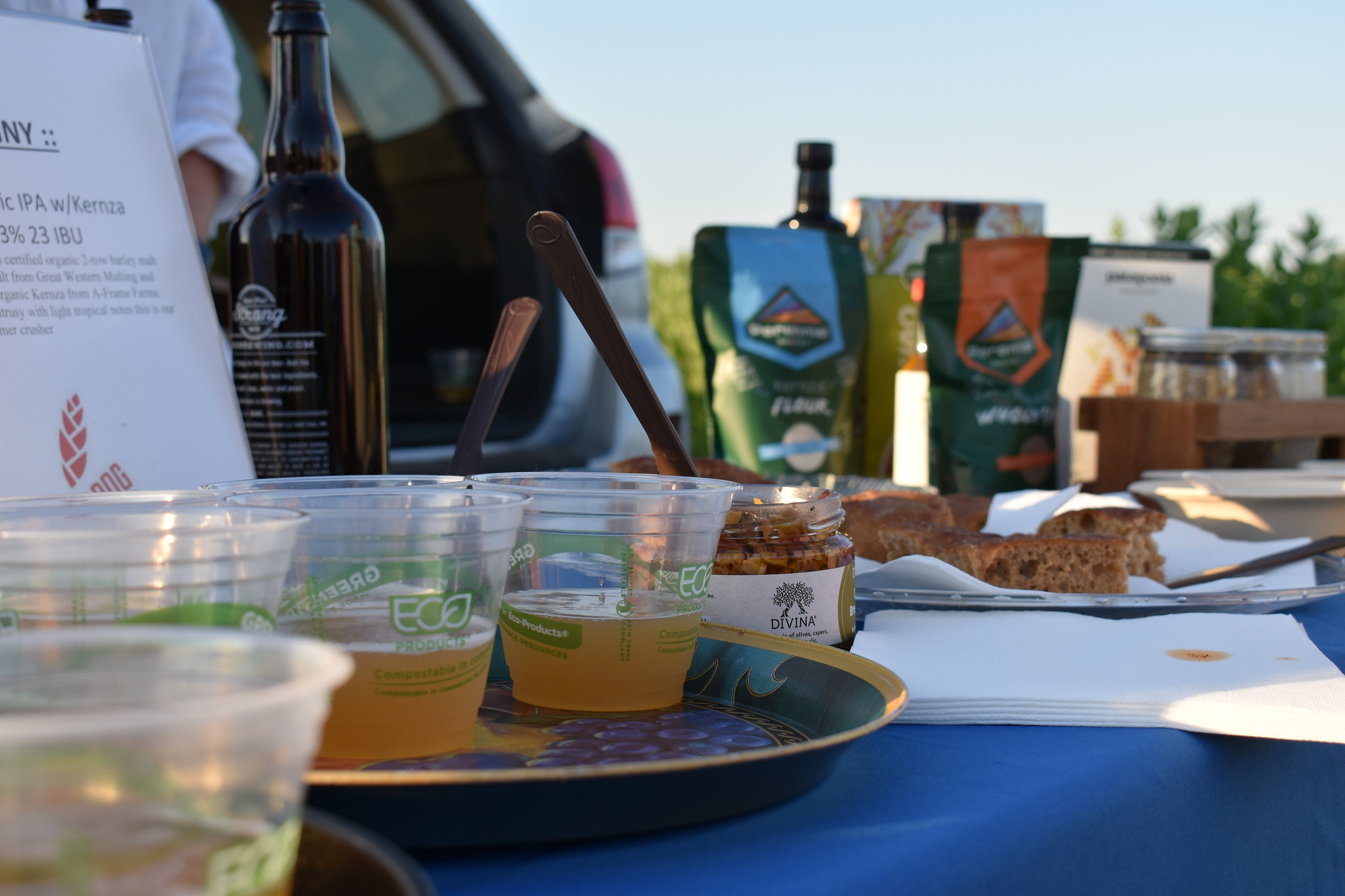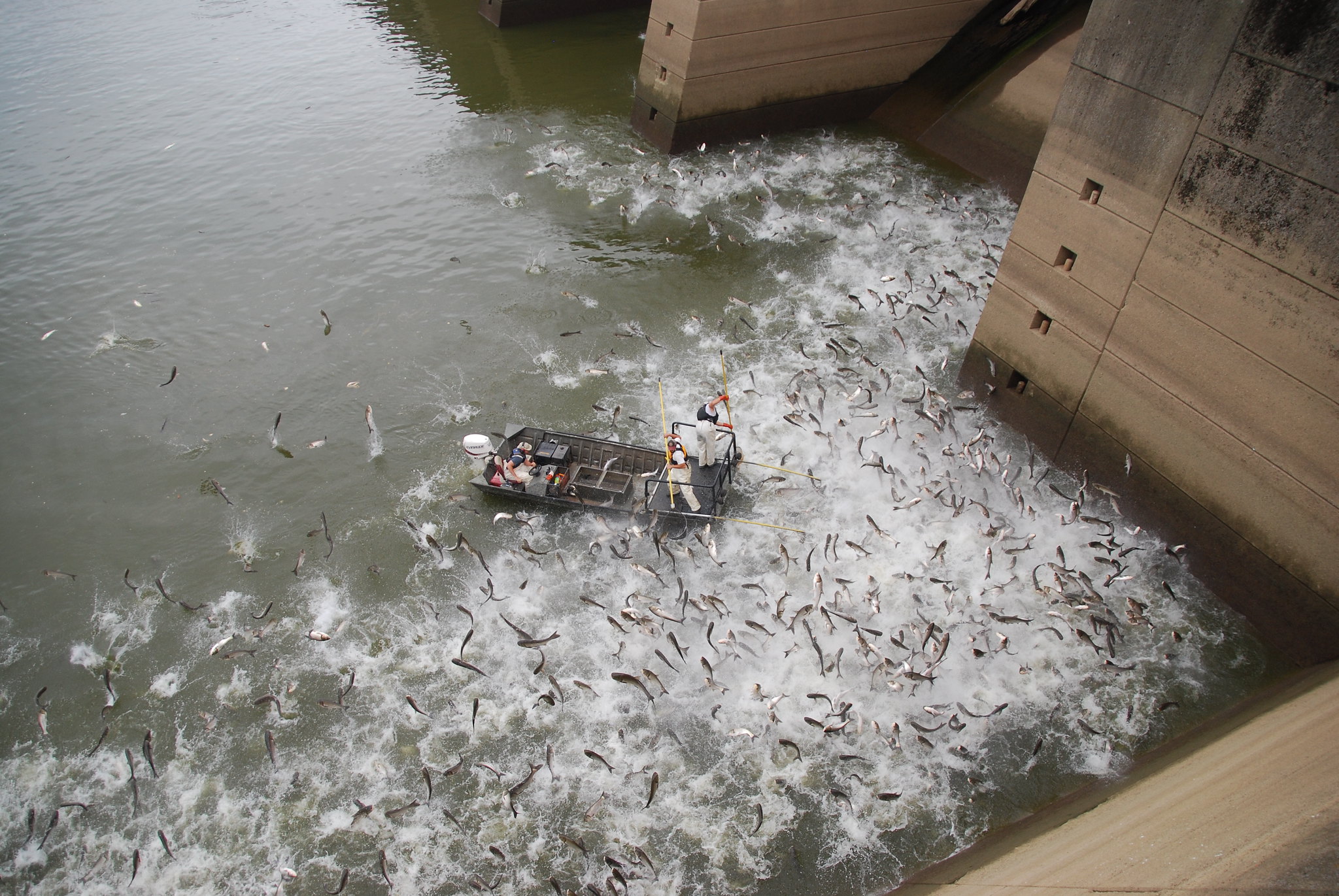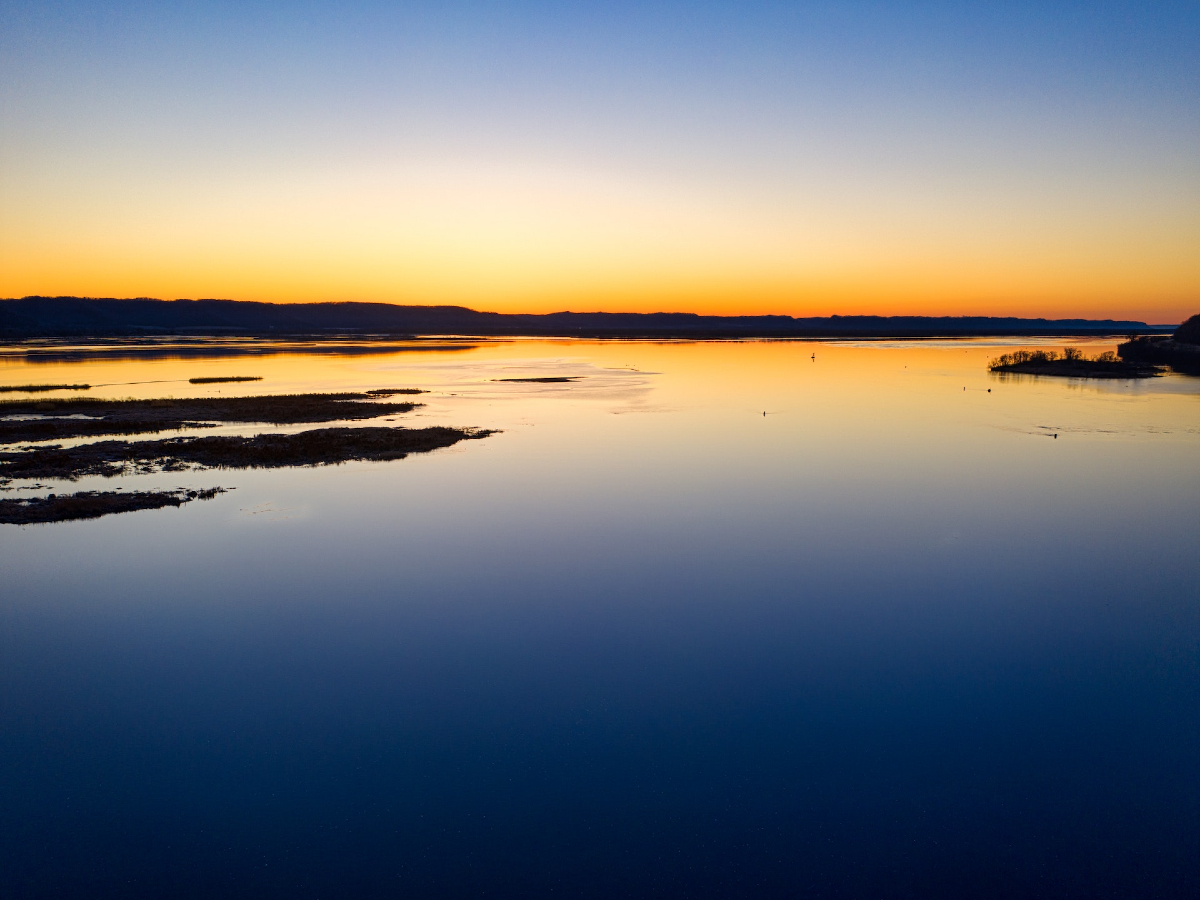Our 2023 legislative priorities

FMR is proud to advocate alongside our River Guardians and many local partner groups at the capitol in St. Paul, both in person and online. (Photo by Fibonacci Blue)
Minnesota's 2023 legislative session is officially here, and with it, an unprecedented opportunity to secure crucial investments in Minnesota's waters, wildlife and communities.
With one-party control of the Minnesota Senate, House of Representatives and governor’s office — plus a $17.6 billion projected budget surplus — the Capitol will certainly be stocked with ambitious proposals from across the policy spectrum. This year more than ever, to rise above the din, we will be relying on the support and engagement of our River Guardians. Your messages, calls and conversations with elected officials will provide the boost we need to make our shared vision a reality.
What will FMR be advocating for and hoping to achieve this year? From crops to conservation to a cutoff wall, here's a look at our 2023 legislative priorities.

Value chain development grants can help businesses create new products with clean-water crops, much like the food and drink items seen above. Want to buy items made with clean-water crops? Check out our list of options here. (Photo by FMR)
Continued support for clean-water crops
Among our top priorities this session are two measures related to clean-water crops, which can help reduce agricultural pollution to the Mississippi River and shore up our farm economy, among other benefits. These two measures include:
- Securing critical state investment in the Forever Green Initiative and Forever Green Partnership, which together provide the research and organizational muscle to make clean-water crops a reality.
- Boosting the recently launched “Continuous Living Cover Value Chain Development Fund," which FMR helped establish last session. This fund allows Minnesota businesses to create new products with these clean-water crops, build supply chains and grow a more sustainable agriculture sector from the ground up.
Read more: Clean-water crops news and updates from the legislative session
Decisive action to stop invasive carp in the Mississippi River
Invasive carp species (silver carp, grass carp, and bighead carp) are making their way into Minnesota, threatening the health of our Mississippi River and its tributaries, our native fish populations, and our treasured recreational activities.

Silver carp leap from the water during an electrofishing removal effort on the Cumberland River in Kentucky. (Photo credit: USFWS)
New research has found a promising opportunity to stop carp from moving upstream past Lock and Dam 5 (near Winona) by installing a sound and bubble barrier in the lock. We will be urging legislators to fund this barrier before it’s too late. The bill will also fund complementary carp management techniques to make the barrier as effective as possible, as well as design of a system to improve native fish passage at the dam.
Read more: Plan to protect MN's waters from invasive carp takes shape
Finding and replacing dangerous lead service lines
Clean, safe drinking water shouldn’t depend on your ZIP code. Yet here in Minnesota, an estimated 100,000 homes still have lead service lines — a significant source of exposure to the toxic metal, which can be especially harmful to children.
FMR will push for funding a complete inventory to locate all existing lead service lines statewide, and urge decision-makers to provide funding that would replace 100% of those harmful service lines.
Read more: The latest lead service line updates from the 2023 legislative session
Funding for FMR habitat restoration projects
FMR’s Land Conservation Program has five habitat restoration projects and one research project that have been recommended for funding from a pair of dedicated environmental funds. If the Outdoor Heritage Fund package is approved without changes, FMR would receive $435,000 for restoration and enhancement at multiple sites:
- Maplewood’s Applewood and Carver Preserves
- Vermillion River Aquatic Management Area’s Kamen East and Butler parcels
- Hastings Sand Coulee SNA
In addition, the Environment & Natural Resources Trust Fund recommendations include $75,000 for an an FMR-led research project on the effects of various prairie restoration methods on pollinator habitat quality and actual pollinator abundance and diversity. Results would inform the creation of a set of recommendations for statewide pollinator habitat restoration best practices.
Given the relatively bipartisan nature of these dedicated fund processes, we anticipate these funds to be appropriated by lawmakers with little controversy.
Read more: Conservation funding updates from the Capitol
Make the Clean Fuel Standard clean
Last session, FMR was one of 22 organizations that delivered a letter to Gov. Tim Walz's administration detailing our position on the state's proposed clean fuel standard rulemaking process. We strongly supported the amended legislation heard in the House Climate and Energy Finance and Policy Committee on March 29.
This year, we're looking forward to working with a broad range of allies to explore the potential for similar legislation to be brought back this session.
Read more: Why FMR is working on a Clean Transportation Standard
Long-term protection for ENRTF lottery dedication
The Environment & Natural Resources Trust Fund (ENRTF) was created in 1988 when 77% of voters approved a constitutional amendment to protect the state’s natural resources with funds from the newly created state lottery. The fund now provides more than $60 million annually in dedicated environmental funding.
The constitutional dedication of lottery proceeds to the ENRTF is set to expire in 2024.
Renewing the dedication requires a public referendum, which can only be triggered by the state Legislature. We're hoping to see movement on such a bill this year.
In addition, as a result of repeated raid attempts and legislative shenanigans, ensuring the passage of a clean ENRTF bill has become a top-line priority for FMR in recent years.
Read more: Protecting the Environment & Natural Resources Trust Fund
Time to take a good look at that old cutoff wall
It’s not clear when in its 147-year lifespan the so-called "cutoff wall", which lies under the river's bedrock and supports St. Anthony Falls, was last inspected or maintained because no party takes responsibility for it. We suspect the wall could be in poor, even dangerous, condition.
As a first step toward addressing this “orphan hazard,” we’re asking the Legislature to fund an inspection of the wall’s condition and an analysis of the risks a collapse would pose. This is an important step in resolving the wall's ownership questions and ushering in any needed maintenance, plus ongoing monitoring.
Read more: What's being done about the cutoff wall, St. Anthony Falls' hidden hazard
Safeguarding the Clean Water Fund
Every two years, Minnesota's nonpartisan Clean Water Council works with experts from across the state to craft detailed recommendations to the Legislature on how to best invest dollars from the Clean Water Fund — created after the adoption of the Clean Water, Land and Legacy Amendment in 2008.
FMR has reviewed the Clean Water Council's recommendations in detail and looks forward to working with lawmakers in both parties to ensure that these recommendations are reflected in the Legislature's final appropriations this session.
